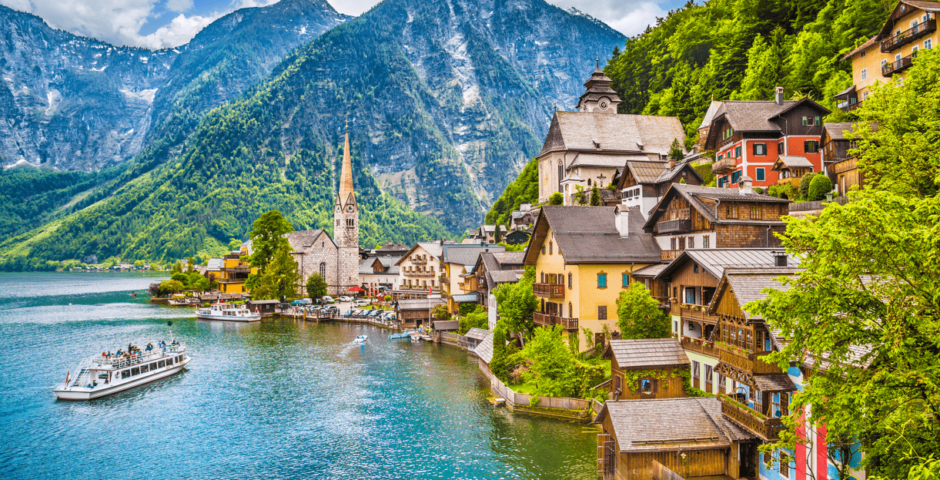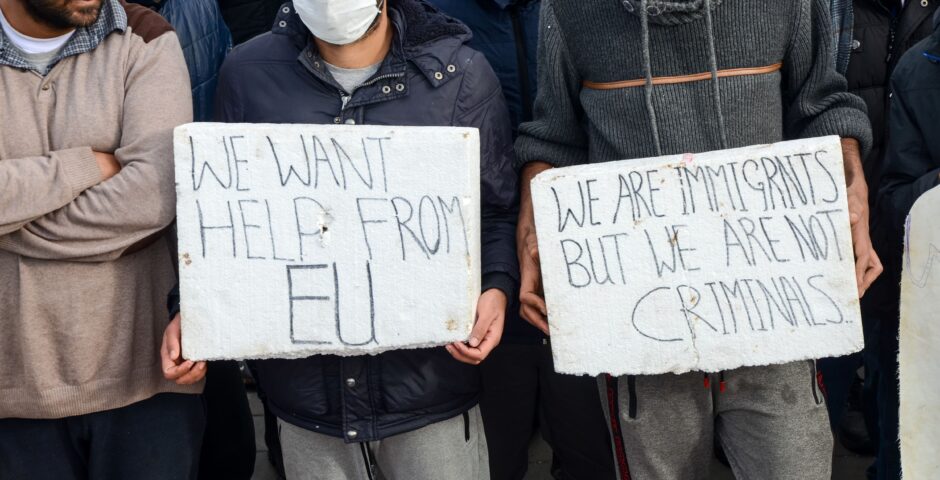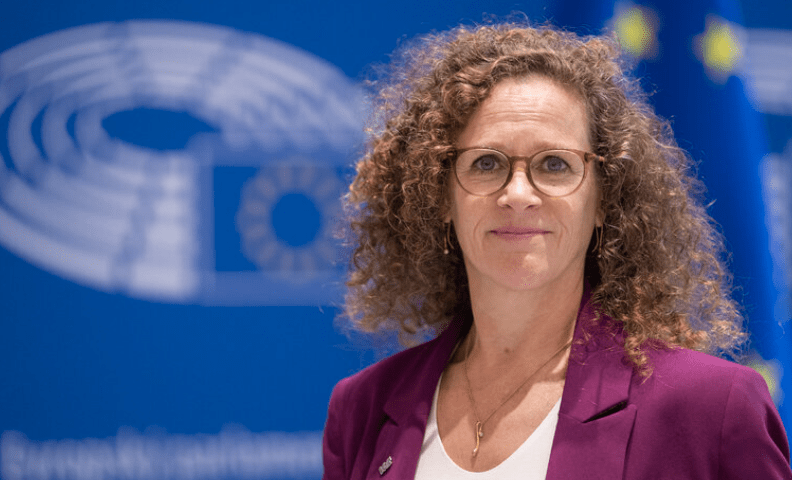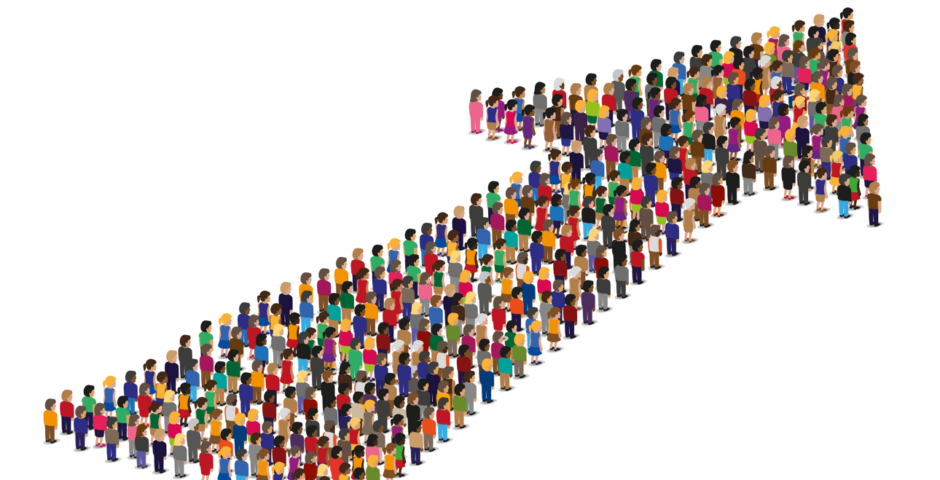Profile of EU member Austria: from centrist traditions to rising populism

From the Ibiza Scandal to the Rise of the Right-wing.
Nestled in the heart of Central Europe, Austria is a landlocked country, which is bordered by eight nations, including Germany, the Czech Republic, and Italy. The home country of the most well-known classical composer, W. A. Mozart fascinates visitors with its stunning Alpine landscapes, classical architecture as well as its cultural heritage that echoes through the centuries.
However, beyond its scenic splendor lies a nation preparing for the forthcoming European Parliament (EP) election. In this article, we will explore its political landscape, and examine how these elements converge in the context of the upcoming EP election.
Austria in facts and figures
Population and economy
Austria is a nation boasting approximately 9 million residents (9,061,848, as recorded on July 1, 2022, according to Statistics Austria: Population statistics, accessed on August 31, 2022). Notably, the population experienced a rapid increase in the first half of 2022, largely attributed to refugee migration from Ukraine, surpassing initial growth projections. With around 1.9 million inhabitants, Vienna is also the most populous of nine federal provinces, accounting for one-fifth of the total population.
Of the nine million people living in Austria, almost 65% are in the “working age” between 15 and 64 years and form the “labour force potential” of the population. 15% are children under the age of 15 and 20% are 65 or older. 21% of the population were born abroad, and 18% have non-Austrian citizenship.
Austria is a social market economy. It offers favorable conditions for investors with its free market economy and strong social focus. The country’s economic and social partnership system plays a pivotal role in wage and price policies. With key industries including food, mechanical engineering, chemicals, and vehicle manufacturing, Austria boasts a highly developed industrial sector. Organic farming is on the rise, with Austria leading among EU states with a 22% share of organic farms. Abundant natural resources, including iron ore and hydroelectric power, contribute to Austria’s energy production. The economic landscape of Austria is primarily characterized by the dominance of small and medium enterprises, with a strong emphasis on exports. The key industrial sectors shaping the economy are the food industries, the machine and steel industry, the chemical and vehicle industry, the electric and electronic industry, and the wood and paper industry.
Renowned for arts and crafts, (winter) tourism also plays a vital role in Austria’s economy, leveraging its mountainous landscapes. Perfect for skiing! Austria’s geopolitical significance is growing, evident in its role as an international meeting point and strategic transit country for European energy supplies.
In addition, following the unprecedented decline induced by the COVID-19 pandemic in 2020, the Austrian economy is witnessing a resurgence. Preliminary calculations indicate that in 2021, the Gross Domestic Product (GDP) experienced a notable growth of 4.5% in real terms. At current prices, the GDP reached approximately €403.4 billion in 2021, translating to €45,043 per inhabitant.
Geography
Austria, situated in south-central Europe, is a small country with a territory spanning around 84,000 square kilometers—roughly double the size of Switzerland but slightly smaller than Maine.
Much of its terrain is Alpine or sub-Alpine, characterized by densely forested mountains and hills intersected by valleys with swift-flowing rivers. Valleys can be found surrounding Vienna and the Danube Valley in the northeast, where most of the population resides. The country spans nearly 600 kilometers from Lake Constance at the Austrian-Swiss border to the Neusiedler Sea on the Austrian-Hungarian border.
Austria borders the Czech Republic and Germany to the north, Hungary and Slovakia to the east, Slovenia and Italy to the south, and Switzerland and Liechtenstein to the west. The Austrian landscape is distinguished by its two prominent features: the Alps and the Danube River. Originating in southwestern Germany, the Danube traverses Austria before reaching the Black Sea. Remarkably, it is the sole major European river to flow eastward. The completion of the Rhine-Main-Danube Canal in Bavaria in 1992 further bolstered its significance as an inland waterway, facilitating barge traffic from the North Sea to the Black Sea. Encompassing 62 percent of Austria’s total area, the Alps comprise three primary ranges: the Northern Alps, Central Alps, and Southern Alps, spanning the country from west to east.
Politics
Austria is a federal parliamentary republic. The President serves as the head of state, while the Chancellor is the head of government. The nation is composed of 9 states (Bundesländer). Both regional and federal authorities hold executive authority. The federal Parliament comprises two chambers: the Lower House (Nationalrat), elected directly, and the Upper House (Bundesrat), elected by regional parliaments.
The federal principle allocates legislative, executive, and financial duties between the nine Austrian Provinces on the one hand and the federal government on the other. It is, therefore, in contrast with the centralist form of organization, in which the legislative and executive powers are reserved to the central government such as in France and Italy. Legally, federalism, or the federal principle, is enshrined in the Federal Constitution.
The country has a multi-party system, with the two largest parties traditionally being the center-right Austrian People’s Party (ÖVP) and the center-left Social Democratic Party of Austria (SPÖ).
According to the European Consortium for Political Research, Austrian politics in 2022 faced significant challenges with widespread public discontent. The year was marked by pandemic fatigue, escalating inflation, and the unfolding ÖVP corruption scandal. The Ibiza scandal in Austria, which emerged in May 2019, involved a secretly recorded video showing Heinz-Christian Strache, then-leader of the far-right Freedom Party (FPÖ), engaging in corrupt negotiations. Strache resigned as vice chancellor, leading to a government collapse and a major political crisis.
Consequently, the ruling coalition parties, the Christian-Democratic ÖVP and the Greens, experienced setbacks in the elections, while opposition parties, notably the right-wing Austrian Freedom Party, saw increased support. In the presidential election held in October, incumbent President Alexander Van der Bellen secured a second term. The regional elections in Tyrol resulted in significant losses for the governing parties, ÖVP and Greens, both locally and nationally. Despite these setbacks, the ÖVP maintained its position in the regional government and formed a coalition with the Austrian Social Democratic Party following the Tyrolean election.
EU accession of Austria (Austria and the EU)
In 1989, the Austrian Government formally applied for European Community (EC) membership in 1989. After five years of successful negotiations and backed by a national referendum, Austria joined the EU on January 1st, 1995. Austria’s accession negotiations were conducted in parallel with other countries from Central and Eastern Europe, and with specifically Sweden and Finland, reflecting the broader political changes sweeping across the continent following the fall of the Iron Curtain. Ever since its accession, the country has actively participated in all the EU institutions (European Parliament, European Commission, and Council of the European Union) and constructively shaped the EU´s development in the decision-making processes and adheres to EU policies and regulations.
According to the Austrian Federal Ministry of Labor and Economics, Austria has presided over the Council of the European Union three times: in 1998, 2006, and during the latter half of 2018. Within the European Commission, Austrian officials have held key portfolios: from 1995 to 2004, Franz Fischler led the Directorate-General for Agriculture, Rural Development, and Fisheries, significantly influencing reforms under the Agenda 2000. Following Fischler’s tenure, Benita Ferrero-Waldner served as Commissioner for External Relations and European Neighbourhood Policy from 2004 to 2010. Johannes Hahn, who assumed office in January 2010, initially oversaw the Directorate-General for Regional Policy until 2014 before becoming Commissioner for Enlargement and European Neighbourhood Policy until 2019, focusing notably on relations with the Western Balkans. Currently, Johannes Hahn serves as the Commissioner for Budget and Administration.
Austria’s accession process involved meeting the criteria set out by the EU, including political, economic, and legal standards. These criteria are commonly referred to as the “Copenhagen criteria,” which require candidate countries to have stable institutions guaranteeing democracy, the rule of law, human rights, and respect for and protection of minorities. Additionally, candidate countries must have a functioning market economy and the ability to adopt and implement EU laws and regulations. Austria’s accession negotiations were generally smooth, and the country successfully met the criteria set by the EU. Its accession to the EU brought about significant economic, political, and social changes, opening up new opportunities for trade, investment, and cooperation with other EU member states.
The Austrian economy has greatly prospered from its engagement in the expanding single market, leading to substantial job creation. With approximately 70% of its foreign trade occurring with EU member states, participation in the internal market has resulted in significant economic savings. Since joining the EU in 1995, Austrian exports have tripled, generating approximately 18,500 new jobs annually. Membership in the EU, alongside accession to the Monetary Union, has enabled Austria to capitalize on enlargement opportunities and mitigate the impact of economic downturns. Furthermore, citizens have reaped numerous benefits, including seamless travel across borders, participation in EU exchange programs for education, and the advantages of a common currency, along with the right to reside in any EU member state.
In 2011, Austria’s economy stabilized, but corruption scandals and leadership issues boosted support for the Freedom Party. The party’s Eurosceptic and anti-immigrant stance influenced national discussions, with leader Heinz-Christian Strache facing criticism for controversial remarks. The migrant crisis and terrorist attacks eroded support for the ruling coalition, leading to Austria suspending its participation in the Schengen Agreement in 2016. The Freedom Party gained traction in the 2016 presidential election, signaling discontent with mainstream parties. Sebastian Kurz’s People’s Party won the 2017 general election, forming a coalition with the Freedom Party. Before taking office, Kurz pledged to maintain Austria’s pro-EU stance, secured by President Van der Bellen.
EP Elections in 2019
The previous EP elections took place in Austria on 26 May 2019 to elect the country’s 18 members of the European Parliament. The vote turnout was 59.80%. In terms of seats, Austria currently holds 18 seats in the European Parliament, which increases to 19 after Brexit.
| Party | Orientation | Seats |
| Austrian People’s Party (ÖVP) | Christian democratic and liberal-conservative | 7 (34,6%) |
| Social Democratic Party of Austria (SPÖ) | Social democratic | 5 (23,9%) |
| Freedom Party of Austria (FPÖ) | National conservative and right-wing populist | 3 (17,2%) |
| NEOS-The New Austria (NEOS) | Liberal | 1 (8,4%) |
| The Greens (Grüne) | Green | 2 (14,1%) |
| Jetz – Liste Peter Pilz | Green and left-wing populist | (1.0%) |
| Others | (0.8%) | |
| Total | 18(100%) | |
| Turnout (%) | 59.80% | |
| Legal threshold for obtaining MEPs (%) | 4 % |
In the 2019 election, the ÖVP secured a significant victory, garnering 34.6% of the vote, surpassing the SPÖ by a margin of 10.7%. This marked a notable increase of 7.6 percentage points for the ÖVP compared to 2014, while the SPÖ maintained its position with 23.9% of the votes, experiencing only a slight decline of 0.2 percentage points. Interestingly, the FPÖ managed to mitigate its losses, experiencing a decrease of only 2.5 percentage points and achieving a vote share of 17.2%. The NEOS maintained a similar level of support as in 2014, with 8.4% of the vote, representing a slight increase of 0.3 percentage points. Notably, the Greens made significant gains, securing 14.1% of the vote, despite a slight decrease of 0.4 percentage points from 2014. This achievement is particularly noteworthy considering the party’s modest 3.8% share in the 2017 national election, suggesting a resurgence in their political presence following the 2019 EP election. Conversely, the 1 Europe list and the KPÖ fell short of expectations, receiving 1% and 0.8% of the vote, respectively.
The Austrian EP campaign began with a focus on European issues, but national political turmoil took precedence in the final 10 days, highlighting the EP election’s secondary nature as an early indicator of national sentiment. This underscores how rapidly national politics can overshadow European concerns when parties shift focus. The Austrian case reveals the ongoing dominance of national politics over European issues, posing challenges for policies requiring collective European action, such as climate change or taxation. While the increased turnout in the 2019 EP election is positive, it underscores that national politics remains the primary focus.
EP Elections 2024
The 2024 European Parliament election in Austria will be held on 9 June 2024 as part of the 2024 European Parliament election. This will be the seventh European Parliament election held in Austria, and the first to take place after Brexit.
Compared to the last election, Austria is entitled to two more MEPs in this election: one assigned in 2020 on the occasion of the redistribution post-Brexit, and one assigned in 2023 after a pre-election assessment of the Parliament composition based on the most recent population figures. The additional seat assigned in 2020 went to the Green Party.
Regarding parliamentary representation, it should be taken into consideration that in 2019 Austria received 18 seats before Brexit and 19 afterwards. This meant the ÖVP could gain two additional seats, as it currently held 7 seats, while the SPÖ retained its 5 seats. The FPÖ and Greens each lost one seat, reducing their representation to 3 and 2 seats, respectively. The NEOS maintained their single MEP as of 2014. Following Brexit, in the 2019 election, the Greens were expected to secure the additional seats allocated to Austria.
In addition, SPÖ members have expressed optimism about the upcoming election, with Andreas Schieder stating, “The coming election would show that the SPÖ is back, that we are winning trust and elections!” Schieder, who received 89.9% of the vote, emphasized the party’s efforts to revitalize itself domestically. Andreas Babler, re-elected as party leader with 88% of the vote, is spearheading this rejuvenation. However, there is skepticism about the potential for rejuvenation within the EU delegation, given the retention of familiar faces by the old leadership. Babler himself underscored the significance of the EU elections for social democrats, viewing the bloc as a social democratic project that embodies strength through unity.
Ngan Ha Tran earned her Master’s degree in World Politics and International Relations from the University of Pavia, Italy, following her completion of a bachelor’s degree in English for International Relations at the Diplomatic Academy of Vietnam.
Image: Shutterstock




